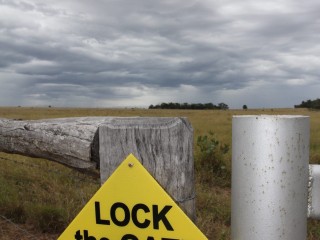 The explosive growth of the Coal Seam Gas industry is meeting resistance at local Government level in New South Wales, where petroleum exploration tenure applications now cover half of the state’s land area.
The explosive growth of the Coal Seam Gas industry is meeting resistance at local Government level in New South Wales, where petroleum exploration tenure applications now cover half of the state’s land area.
The CSG industry’s rapid move from exploration to development phase in the face of unresolved concerns over land, water and health impact issues has triggered vocal protests from landholders and rural residents in Queensland in the past 12 months.
Similar concerns have recently prompted several northern NSW councils to actively oppose CSG developments in their regions.
Ballina, Lismore, Kygle and Tweed Councils and county council Rous Water have passed moratoriums on Coal Seam Gas mining.
NSW’s North East Forest Alliance recently analysed Department of Mineral Resources data and found that 23.5 million hectares of NSW was already covered by petroleum exploration or production licenses, and a further 13.8 million hectares had current applications pending approval.
That equated to half the state's land area.
“Almost the entire north coast, from Gosford in the south to Byron Bay in the north, is covered by existing exploration licenses or applications.
“These licenses have been issued across vast swathes of NSW without any meaningful environmental assessment.”
The New South Wales Farmers Association has also expressed concern about the lack of regulation surrounding the use of potentially dangerous chemicals for hydraulic fracturing, or “fracking”.
The process involves blasting a mixture of water, sand and chemicals at high pressure into underground formations to break up seams and to maximise the release of trapped gas.
NSW Farmers Association Mining chair Fiona Simson said there was little understanding of where gases and chemicals could end up, and greater regulation was desperately needed.
“It is appalling to think the country’s chemical's watchdog hasn’t been required to test these toxins for the purpose of fracking,” she said.
“We’re aware only of two most commonly used fracking chemicals that have been tested by the National Industrial Chemicals Notification and Assessment Scheme, and even these weren’t regulated for the purpose of fracking.
“This would be unacceptable for the agricultural and veterinary sector, where chemicals are subject to rigorous scientific testing.”
In March during the recent NSW election campaign ousted premier Kristina Keneally pledged if re-elected to ban the use of BTEX chemicals and exploration activities on waterways next to national parks. She would also establish an ombudsman to manage gas related complaints and would consider banning CSG developments in areas of social and economic significance such as prime agricultural land.
At the time incoming premier Barry O’Farrell described the announcements as “too little, too late”, but there has been little public indication of his position on the CSG issue since taking power in late March.
In the meantime the NSW Government is in the process of developing the draft NSW Coal and Gas Strategy initiated by the previous Government. Submissions to that process closed in mid-April.
On Monday NSW Greens Senator and Orange City Councillor Jeremy Buckingham introduced a private member’s bill to the NSW Parliament calling for a moratorium on the granting of exploration licenses for and the production of coal seam gas.
